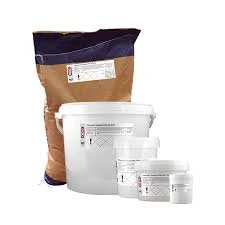
Fév . 18, 2025 00:54
Back to list
Aspartame
Aspartame is a low-calorie sweetener discovered in 1965 that has since become a staple in various food and beverage products worldwide. As an expert in nutritional sciences and food engineering, I have spent years researching the impacts and applications of this synthetic sweetener. This article aims to provide a unique insight into aspartame products, exploring their benefits, applications, and addressing common concerns associated with their consumption.
However, the conversation around aspartame is incomplete without addressing potential health concerns. The credibility of aspartame has been scrutinized over the years, often stirring debates around its safety. To address such skepticism, global health authorities, including the United States Food and Drug Administration (FDA), the European Food Safety Authority (EFSA), and the World Health Organization (WHO), have evaluated aspartame multiple times. These institutions have consistently concluded that aspartame is safe for human consumption within the established Acceptable Daily Intake (ADI), which is set at 40 mg per kilogram of body weight per day by the EFSA, and slightly higher by the FDA. This scientific consensus underscores aspartame's safety when consumed in reasonable quantities. Significant misinformation still looms over aspartame, primarily linked to outdated studies and anecdotal claims that suggest a connection to adverse health effects. Credible research counters these claims, indicating no residual impact when consumed responsibly. Nonetheless, individuals with phenylketonuria (PKU), a rare genetic disorder, should avoid aspartame due to their inability to metabolize phenylalanine effectively. Beyond the realm of human consumption, aspartame products are also pivotal in therapeutic nutrition. Liquid nutritional supplements formulated with aspartame provide patients with palatable options that comply with dietary restrictions, proving particularly beneficial in clinical settings where patient compliance can be a barrier. In summary, aspartame products stand at the intersection of taste appeal, dietary management, and nutritional science. With decades of research to support its safety and usage in diverse applications, aspartame remains an authoritative, reliable choice for consumers seeking to balance indulgence with health. For manufacturers in pursuit of innovative and health-conscious product lines, aspartame offers a pathway to not only meet consumer demand but also uphold stringent safety standards endorsed by leading health organizations.


However, the conversation around aspartame is incomplete without addressing potential health concerns. The credibility of aspartame has been scrutinized over the years, often stirring debates around its safety. To address such skepticism, global health authorities, including the United States Food and Drug Administration (FDA), the European Food Safety Authority (EFSA), and the World Health Organization (WHO), have evaluated aspartame multiple times. These institutions have consistently concluded that aspartame is safe for human consumption within the established Acceptable Daily Intake (ADI), which is set at 40 mg per kilogram of body weight per day by the EFSA, and slightly higher by the FDA. This scientific consensus underscores aspartame's safety when consumed in reasonable quantities. Significant misinformation still looms over aspartame, primarily linked to outdated studies and anecdotal claims that suggest a connection to adverse health effects. Credible research counters these claims, indicating no residual impact when consumed responsibly. Nonetheless, individuals with phenylketonuria (PKU), a rare genetic disorder, should avoid aspartame due to their inability to metabolize phenylalanine effectively. Beyond the realm of human consumption, aspartame products are also pivotal in therapeutic nutrition. Liquid nutritional supplements formulated with aspartame provide patients with palatable options that comply with dietary restrictions, proving particularly beneficial in clinical settings where patient compliance can be a barrier. In summary, aspartame products stand at the intersection of taste appeal, dietary management, and nutritional science. With decades of research to support its safety and usage in diverse applications, aspartame remains an authoritative, reliable choice for consumers seeking to balance indulgence with health. For manufacturers in pursuit of innovative and health-conscious product lines, aspartame offers a pathway to not only meet consumer demand but also uphold stringent safety standards endorsed by leading health organizations.
Next:
Latest news
-
Sodium Dichloroisocyanurate Safety Handling ProtocolsNewsJul.29,2025
-
Mining Chemicals for Copper Extraction Processes GuideNewsJul.29,2025
-
Fertilizer for Sale Shipping and Storage TipsNewsJul.29,2025
-
Dimethyl Disulfide as Sulfurizing AgentNewsJul.29,2025
-
Benzotriazole Safety Data Handling and Storage GuidelinesNewsJul.29,2025
-
Ammonium Bicarbonate Safety Handling Storage GuidelinesNewsJul.29,2025
-
The Transformative Role Of Trichloroisocyanuric Acid in Water TreatmentNewsJul.23,2025
HOT PRODUCTS
Hebei Tenger Chemical Technology Co., Ltd. focuses on the chemical industry and is committed to the export service of chemical raw materials.
-

view more DiethanolisopropanolamineIn the ever-growing field of chemical solutions, diethanolisopropanolamine (DEIPA) stands out as a versatile and important compound. Due to its unique chemical structure and properties, DEIPA is of interest to various industries including construction, personal care, and agriculture. -

view more TriisopropanolamineTriisopropanolamine (TIPA) alkanol amine substance, is a kind of alcohol amine compound with amino and alcohol hydroxyl, and because of its molecules contains both amino and hydroxyl. -

view more Tetramethyl Thiuram DisulfideTetramethyl thiuram disulfide, also known as TMTD, is a white to light-yellow powder with a distinct sulfur-like odor. It is soluble in organic solvents such as benzene, acetone, and ethyl acetate, making it highly versatile for use in different formulations. TMTD is known for its excellent vulcanization acceleration properties, which makes it a key ingredient in the production of rubber products. Additionally, it acts as an effective fungicide and bactericide, making it valuable in agricultural applications. Its high purity and stability ensure consistent performance, making it a preferred choice for manufacturers across various industries.











